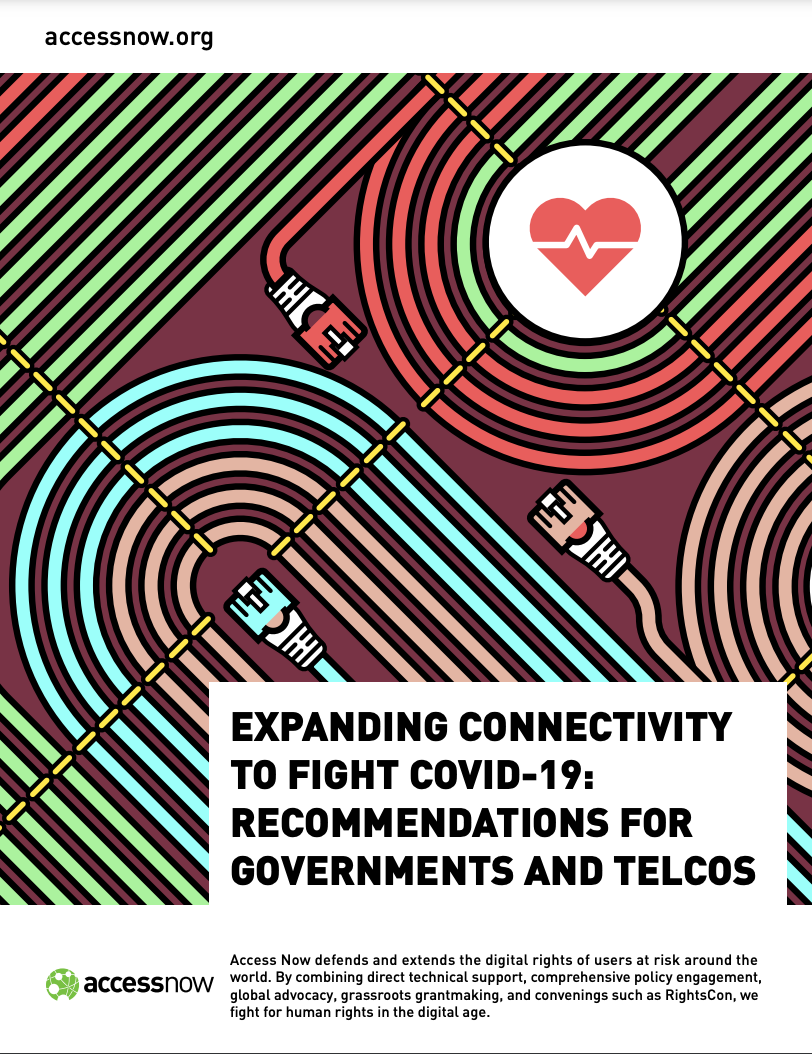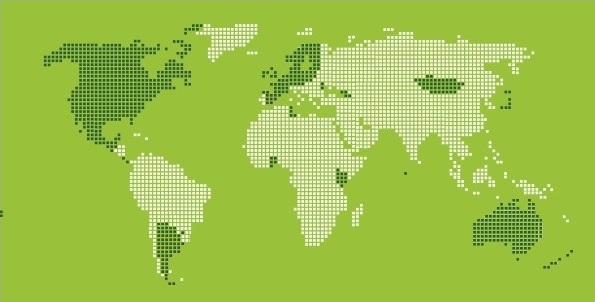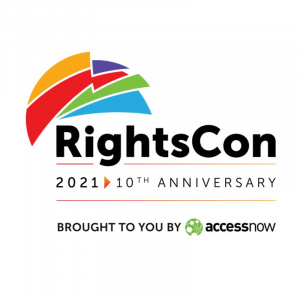10th year of RightsCon and 15 ways to save the internet and protect democracy
Reports and videos of panel discussions published by RightsCon and Access Now
By Sarah De Leon
RightsCon 2021 was held online for the second consecutive year from Monday, June 7 to Friday, June 11. Rights Con and Access Now hosted its largest program yet, with over 500 sessions happening across 16 tracks and 10 intersecting themes. RightsCon is tagged as the world’s leading summit on human rights in the digital age.
In 2011, Access Now hosted the first-ever RightsCon (then the Silicon Valley Human Rights Conference). The objective of the conference is for a civil society-led space where all stakeholders – from tech companies to government representatives to human rights defenders – come together to build a rights-respecting digital future. Since then, RightsCon has been held in Rio de Janeiro, Manila, Brussels, Toronto, Tunis, three times in Silicon Valley, and twice online.
Access Now is an international organization that defends and extends the digital rights of users at risk around the world.
Access Now Executive Director Brett Solomon highlighted the accomplishments of this year’s RightsCon in his closing message. Here are a few:
- For the third consecutive year, United Nations Special Rapporteurs released a joint statement emphasizing digital rights as a “top priority,” and this time too for rebuilding civic space in pandemic recovery. COVID-19 recovery efforts to “build back better” must address serious threats contributing to the closing of civic space and suppression of free speech and media freedom, the experts said, along with ongoing global crises such as systemic violence, climate change, structural inequality, institutional racism, and gender-based violence.
- Artists, journalists, human rights defenders and came together to Tell Facebook: Stop Silencing Palestine amid hundreds of reports of content takedowns in May this year. Restricting Palestinian protest hashtags, blocking live streams, and removing posts and accounts in social platforms Facebook, Instagram and Twitter were reported. The Intercept wrote on Facebook’s internal policy on when to delete Facebook/Instagram posts containing the word “Zionist.” This was slammed for impeding criticism of Israel and Facebook silencing political speech.
- The Digital Rights Litigators Network — born at RightsCon 2016 — rallied around legal challenges to the Nigerian government’s order for Twitter to stop operating in the country, and began organizing a global intervention under the leadership of local groups.
- Civil society called on the Malaysian government to abandon all attempts to throttle and censor online free speech. In February this year, independent media outlet Malaysiakini was convicted by the country’s highest court for failure to moderate five comments on its platform deemed to scandalize the judiciary. In March 2021, the enactment of the Emergency (Essential Powers) (No.2) Ordinance concerning so-called “fake news” was seen as a systematic campaign to silence critical or dissenting voices. The emergency law reintroduced provisions from the heavily criticized and now-defunct Anti-Fake News Act 2018. As parliament remains suspended, and Malaysia heads towards potential general elections, charges of contempt of court, sedition, and communications laws were reportedly used to target human rights defenders and independent media platforms.
- The Gulf Centre for Human Rights and other groups launched the new MENA (Middle East and North Africa) Coalition to Combat Digital Surveillance during the RightsCon on June 7. The objective is to oppose the sale of surveillance technologies to governments using them to violate human rights and to fight for a safe and open internet, defend human rights, and protect human rights defenders. The murder of Saudi journalist Jamal Khashoggi in 2018 showed the dangers of targeted surveillance and of these tools in the hands of repressive governments.
The RightsCon After Dark program featured performances from artists. Several women artists were featured. Watch Sabika, an activist, organiser, poet, and the Founder of Sar-e-rahguzar: Poetry on the Streets. Her work revolves around gender and minority rights. She has been part of several anti-fascism and human rights movements and groups. She is the co-editor of The Bystander Anthology and the Senior Editor of The South Asian Avant Garde Anthology. She is also an INK Fellow.
Another performance is from the LAM Sisterhood, an award-winning story company, fills the world with stories for African women and runs the Brazen Podcast.
Solomon also talked about Protecting digital civic space: the role of technology in supporting democracy in a panel discussion at RightsCon. He outlined 15 things governments can do to make sure technology is used to defend, and not destroy, democracy and human rights.
 Get the whole population online, especially the most marginalized. Access Now published a report on recommendations for governments and telcos to expand connectivity to fight COVID-19. The report concluded that getting connected is even more urgent during this global public health crisis when access to information and physical distancing will save lives. Telcos and governments must step up to protect people by keeping them connected to the internet, consistent with their obligations under international human rights law.
Get the whole population online, especially the most marginalized. Access Now published a report on recommendations for governments and telcos to expand connectivity to fight COVID-19. The report concluded that getting connected is even more urgent during this global public health crisis when access to information and physical distancing will save lives. Telcos and governments must step up to protect people by keeping them connected to the internet, consistent with their obligations under international human rights law.
- Protect encryption rather than undermine it. The government of India is a spotlight of this recommendation due to its Information Technology Rules. The new guidelines also mandate such as end-to-end encrypted messaging application Signal and WhatsApp to share the details of the first originator of a message. WhatsApp has challenged the clause related to the new guidelines saying it is at odds with end-to-end encryption. Silicon Valley’s Signal Foundation’s Signal app, currently with over 5 million users in India alone, may be held liable under the law for not complying with the ‘traceability provision,’ as this could weaken the app’s end-to-end encryption. Twitter has also been at odds with the law for non-compliance. The guidelines mandate social media companies to appoint compliance officers, nodal officers, and grievance redressal officers.
- Legislate enforceable and robust data protection laws
- Make multi-stakeholderism real by consulting with digital civil society
 Join the Freedom Online Coalition. The FOC is a partnership of 32 governments working to advance Internet freedom. FOC Members are countries committed to protecting and promoting online freedoms domestically and abroad. Since its founding Conference, the FOC has grown from 15 members in 2011 to 32 today. Denmark, the most recent member, joined the Coalition in 2020. The Chair of the Coalition rotates among member states on an annual basis. The 2021 Chair of the Coalition is Finland.
Join the Freedom Online Coalition. The FOC is a partnership of 32 governments working to advance Internet freedom. FOC Members are countries committed to protecting and promoting online freedoms domestically and abroad. Since its founding Conference, the FOC has grown from 15 members in 2011 to 32 today. Denmark, the most recent member, joined the Coalition in 2020. The Chair of the Coalition rotates among member states on an annual basis. The 2021 Chair of the Coalition is Finland.
- Be consistent at home and abroad on digital rights practices and policy
- Ban facial recognition and all biometric surveillance in publicly accessible spaces. The use of facial recognition and remote biometric technologies in publicly accessible spaces enables mass surveillance and discriminatory targeted surveillance. These tools have the capacity to identify, follow, single out, and track people everywhere they go, undermining human rights and civil liberties. Such dangers have been shown in the Netflix documentary “Coded Bias.” More than 175 civil society organizations, activists, technologists, and other experts around the world have signed the letter to #BanBS, calling on decision-makers to stand up against rights-abusing uses of biometric surveillance technologies. They assert that no technical or legal safeguards could ever fully eliminate the threat that facial recognition and biometric surveillance in public places and that these should not be allowed either by governments or the private sector.
- Ensure content regulation by states and moderation by companies is rights-respecting. Access Now recommends that any actions undertaken by governments and platforms to govern content should have a very specific objective in mind: to enable a diverse, free, open, and safe online space. They warn that solutions solely based on censorship or criminalization of users’ activity risk backfiring by affecting the rights of vulnerable groups, independent media, artists, activists, and human rights defenders, among others. Protecting and preserving opinions and allowing participation is as important for strengthening our democracies as keeping people safe and fighting criminal behavior.
- Don’t spy on citizens nor deploy surveillance infrastructure against marginalized communities
- Resist moves toward so-called data and digital sovereignty, which enable authoritarianism
- Stop unlawfully requesting user data from tech companies
- Protect the right to freedom of assembly and peaceful protest online. The COVID-19 pandemic is vastly changing the landscape of assemblies online and offline. People are working their way around health protocols and lockdown rules to continue protesting offline. People are adapting to online forms to continue exercising their rights. But at the same time, states and the private sector are quickly deploying tactics to adjust to these new protest norms ultimately in order to curb dissent. States, the private sector, and the tech sector must continue and update their commitments to address the digital divide, protect the rights to protest, and assemble online and offline.
- Ensure that COVID tracing apps, vaccine passports, and other pandemic responses don’t destroy privacy and freedom of movement in the meantime
- Train your judges, policymakers, and legislators in digital rights
- #KeepitOn. This is the response to various government or private shutdowns of internet and platforms online. In 2020, Access Now and the #KeepItOn coalition documented at least 155 internet shutdowns in 29 countries.








